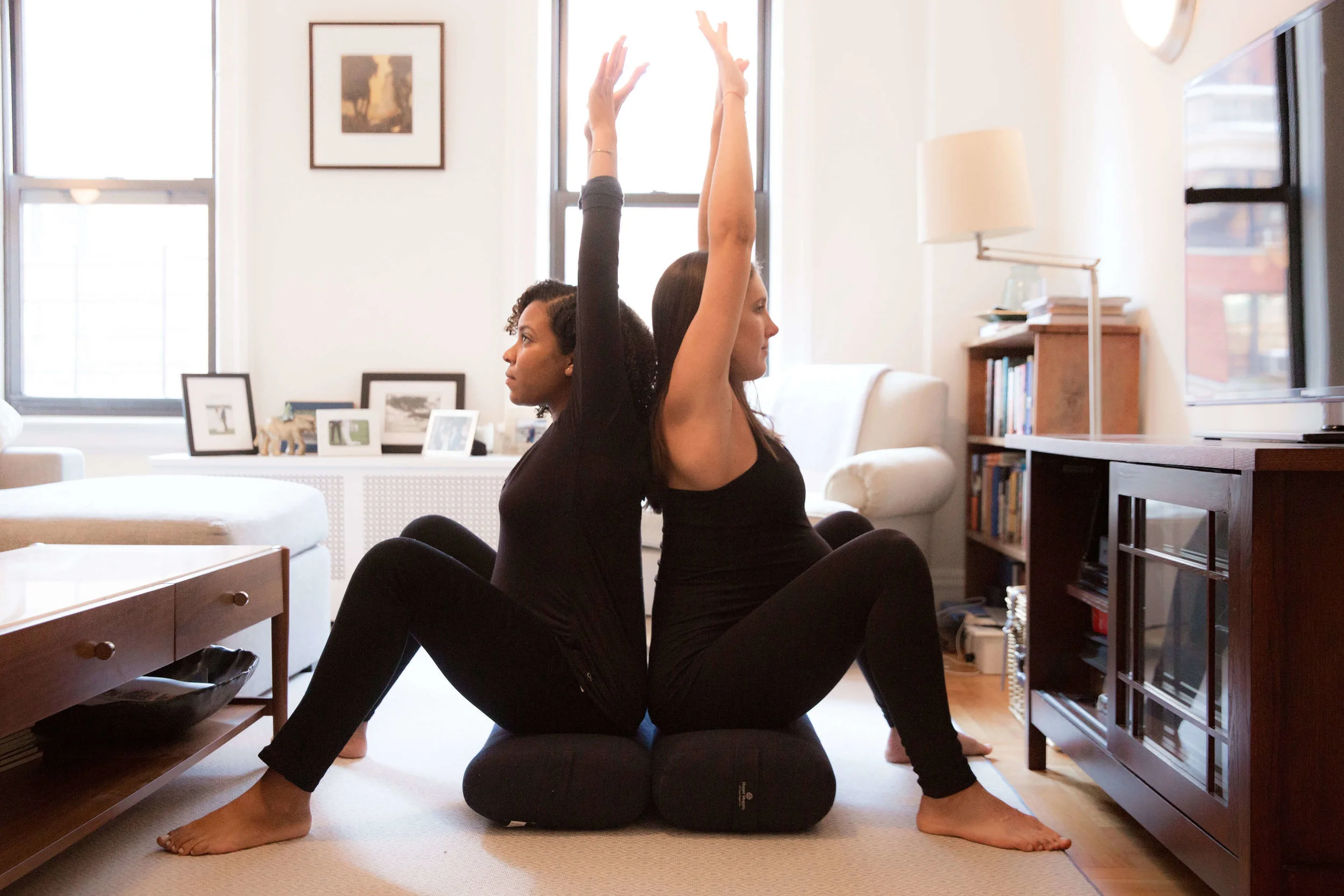Why Relaxation During Pregnancy Matters: Calm Your Mind and Prepare for Labor, Birth and Motherhood
You’re eating nutrient-rich foods, staying active and checking off items on your baby registry. But in addition to taking your prenatal vitamins and getting the nursery ready—are you learning how to relax?
Relaxation plays a vital role in a healthy pregnancy and a positive birth experience, yet it’s often overlooked, especially in the U.S.
When you intentionally learn how to quiet your body and mind, you gain a powerful tool to transform fear and tension into trust and deep rest—something that benefits both you and your baby.
Why Relieving Stress in Pregnancy Matters
Stress isn’t just emotional—it’s physiological. The hormones your body releases in moments of anxiety or overwhelm, like cortisol and adrenaline affect you and your baby.
Think back to a time when you felt stressed. Maybe your shoulders tensed, your jaw clenched or your breath grew shallow. Those physical cues are your body’s way of signaling “fight or flight.”
Now, imagine being able to release tension on demand, even in the middle of a contraction—that’s the power of relaxation training.
When stress hormones like cortisol remain elevated for long periods, they can:
Impact your baby’s development
Increase the risk of preterm birth
Prolong labor or intensify pain
This can create a “fear–tension–pain” cycle that makes labor more difficult and may increase the need for medical interventions. But you can break that cycle by practicing relaxation techniques throughout pregnancy.
“Train your body and mind—and regulate your nervous system—by learning how to relax.”
Learn to relax - for you and your baby.
What Is the Relaxation Response?
The relaxation response, first described at Harvard Medical School in the 1970s, is the opposite of your body’s “fight, flight, or freeze” reaction. Activating it supports your body’s return to balance—slowing your heart rate, lowering blood pressure, easing muscle tension and reducing stress hormones.
Benefits of Relaxation for Birth and Motherhood
Slower heart rate and deeper, more rhythmic breathing
Lower blood pressure and cortisol levels
Reduced muscle tension and discomfort
Improved sleep and digestion
Enhanced sense of calm, confidence and well-being
Pregnancy Relaxation Techniques to Prepare for Labor
You can train your body and mind to enter a state of relaxation - anytime—at home, at work or during labor.
Here are some proven prenatal relaxation techniques you can start today:
1. Deep Breathing
Set aside just 10 minutes a day to focus on slow, full belly breaths. Imagine sending oxygen to your baby with every inhale and releasing tension with every exhale. To learn Womb Breathing, send me a message.
2. Guided Meditation
Listen to a prenatal relaxation track, use a meditation app or find a qualified teacher. Guided imagery helps quiet the mind and reinforce positive associations with labor and birth.
3. Progressive Muscle Relaxation
Also known as a body scan, this technique teaches you to notice and release tension one muscle group at a time—an invaluable skill during the intensity of labor and motherhood.
4. Mindfulness
Being present in your body allows you to experience pregnancy—and labor—with awareness instead of fear. Mindfulness builds resilience and emotional regulation.
5. Prenatal Yoga
Gentle movement and breath work in prenatal yoga help you stay flexible, grounded and connected to your baby. It benefits you physically, mentally, emotionally and spiritually.
Create space in your body and mind - with prenatal yoga.
These practices are safe and beneficial during pregnancy, especially if you’re running around the city and juggling work demands while scheduling visits to your OB’s office.
The U.S. maternity care system tends to focus on physical health and medical management rather than holistic preparation for labor and birth. This leaves gaps in understanding how critical emotional and mental states are in labor and parenting. Working with a doula, trained in mind-body techniques, gives you an advantage. Find out how doula support enhances relaxation and helps ensure a positive birth experience.
Relaxation Is a Skill—Not a Luxury
In our fast-paced culture, self-care often feels like a luxury. But as a mother, relaxation is a necessity. It’s a skill that directly impacts your birth outcome and supports your health long after your baby arrives.
By activating your parasympathetic nervous system—your body’s “rest and digest” response—you enhance circulation, promote digestion and create an internal environment that supports your baby’s growth. Relaxation is as essential as staying active, eating well and getting regular prenatal care.
“When your mind is calm and your body feels safe, labor tends to progress more smoothly.”
Carry Calm Into Motherhood
The same tools that help you feel calm and centered during pregnancy—breathing, mindfulness and visualization— will support you during postpartum recovery. Whether you’re navigating sleep deprivation, breastfeeding challenges or an identity shift, a regulated nervous system allows you to respond rather than react.
Relaxation isn’t about being passive. It’s about cultivating an active calm—a quiet strength that empowers you through labor, birth, and motherhood.
A Relaxed Mama is a Happy Mama
Every breath you take and every moment of stillness you create sends a powerful message to your baby: “We are safe.”
By prioritizing relaxation, you’re not only preparing for a smoother birth—you’re laying the foundation for a peaceful, connected and joyful start to motherhood.
Ready to feel calm and confident about birth? Having trouble relaxing?
Click the Button below to learn more about tools to reduce fear and prepare for your peaceful birth.


